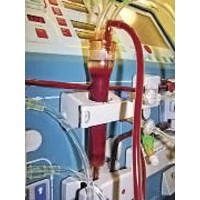Advertisement
Grab your lab coat. Let's get started
Welcome!
Welcome!
Create an account below to get 6 C&EN articles per month, receive newsletters and more - all free.
It seems this is your first time logging in online. Please enter the following information to continue.
As an ACS member you automatically get access to this site. All we need is few more details to create your reading experience.
Not you? Sign in with a different account.
Not you? Sign in with a different account.
ERROR 1
ERROR 1
ERROR 2
ERROR 2
ERROR 2
ERROR 2
ERROR 2
Password and Confirm password must match.
If you have an ACS member number, please enter it here so we can link this account to your membership. (optional)
ERROR 2
ACS values your privacy. By submitting your information, you are gaining access to C&EN and subscribing to our weekly newsletter. We use the information you provide to make your reading experience better, and we will never sell your data to third party members.
Pharmaceuticals
China's Drug Scandal
Trial of five executives from manufacturer of lethal antibiotic product is under way
by Jean-François Tremblay
August 20, 2007
| A version of this story appeared in
Volume 85, Issue 34
In the southern China city of Guangzhou, the trial has begun of five executives from a pharmaceutical manufacturer that made a faulty injectable drug that killed 13 people in the city last year.
The executives worked for the now-closed Qiqihar No. 2 Pharmaceutical in Heilongjiang province in northeast China. According to the official newspaper China Daily, they are accused of negligently using the toxic chemical diethylene glycol instead of the relatively benign but more expensive propylene glycol in the manufacture of armillarisin A, an antibiotic for treating gall bladder and gastric conditions. The chemical broker who supplied the diethylene glycol to Qiqihar will be tried separately.
At least 64 patients at Guangzhou's Sun Yat-sen University No. 3 Hospital received injections of the medicine, and 13 of them died.
Qiqihar executives have argued that they did not suspect that their product was lethal, even though they knew from internal laboratory tests that it did not meet standards. The executives have also argued that they were unaware that they were using diethylene glycol. The antibiotic, obtained through a bidding process, had been improperly approved by China's State Food & Drug Administration.
Earlier this year, several former SFDA officials received prison sentences for corruption. The agency's former head was executed last month for accepting bribes in exchange for approving drugs. SFDA recently announced that it plans to spend $1.2 billion over the next three years to improve China's drug testing facilities.



Join the conversation
Contact the reporter
Submit a Letter to the Editor for publication
Engage with us on Twitter